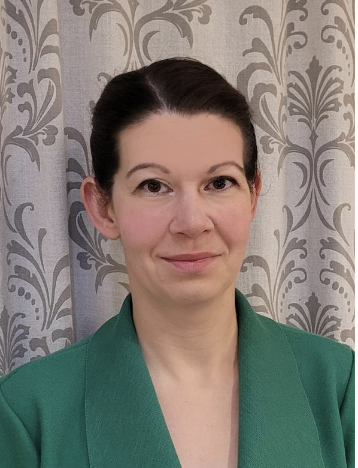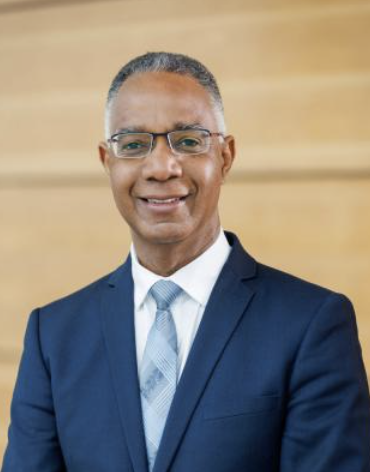EvolvED 2023: GBC’s annual conference, sponsored by our Teaching and Learning Exchange (TLX).
Date: June 29, 2023
Location: Daniels Waterfront - 3 Lower Jarvis Street and online via Zoom
This full-day on-campus conference featured Brenda McDermott (she/her) from the University of Calgary as our keynote speaker, a plenary conversation with John Weigelt, National Technology Officer of Microsoft Canada, concurrent sessions lead by GBC faculty, a luncheon, awards, a wine & cheese social, and prizes.
We explored the latest technology to the latest tools and research, focusing on high-impact and ready-to-implement practices and there were interactive sessions and conversations about the changing landscape of education.
Our keynote speaker and plenary speaker focus on AI (Artificial Intelligence). We explored how AI is disrupting — and will continue to disrupt — industry and post-secondary education and discuss tools to embrace AI in our instructional design.
Keynote Presentation Title: Artificial Intelligence for Equity: How to use Generative AI as a Learning Technology (SJC 406)
Description:
Initial reactions to Generative Artificial Intelligence, such as ChatGPT, raised concerns around academic integrity and the implication on traditional assessment practices. Amongst the panic, the promise of these new large language models was lost, particularly how generative AI could address historical inequities in post-secondary education. This presentation will help you consider Generative AI as a tool for social justice in post-secondary education and will model how to use as a tool for learning and engagement.
Learning Outcomes For Session
- Evaluate the consequences of failing to engage with Generative AI tools, particularly for marginalized learners
- Understand the elements of Artificial Intelligence Literacy and how to integrate these into the classroom
- Explore Generative AI as a way to support self-regulated learning, including metacognition
Brenda McDermott

Bio: Brenda McDermott uses an EDI lens to reflect on teaching and learning practices in post-secondary education – striving to create a sense of belonging for all students and staff. After finishing her PhD in 2015 in Communication Studies, she returned to complete a MEd. In addition to over 10+ of post-secondary teaching experience, Brenda has supported instructors with academic integrity education, writing pedagogy, universal design for learning, and assessment design. She is currently part of the interdisciplinary team examining the ethics of artificial intelligence at the University of Calgary.
Plenary Conversation with John Weigelt and Dr. Gervan Fearon (SJC 406)
Description:
A plenary conversation with John Weigelt, National Technology Officer of Microsoft Canada with special guest host.
John Weigelt

Bio: John Weigelt leads Microsoft Canada’s strategic policy and technology efforts. He helps individuals and organizations across Canada innovate with technology while avoiding the unintended consequences that might arise. John has contributed to many technological efforts that established the foundation for the electronic services we take for granted today and he continues to lead efforts to evolve technology standards and policy. His extensive experience in technology, business and policy provides him with a unique perspective of our technology enabled economy.
Dr. Gervan Fearon

Bio: Dr. Gervan Fearon became President of George Brown College in August 2021. Working with colleagues across the college, he aims to support career-oriented programs to meet the needs of students and the demands of employers; advance college-led research; and enhance community engagement. With a proven track record of collaboration, transformative leadership and engaging higher learning communities in a shared mission, he leads George Brown’s efforts to provide transformative education opportunities that benefit learners, industry and the greater community.
Gervan previously served as the President and Vice-Chancellor at Brock University and at Brandon University. He has also held numerous progressive roles in post-secondary education, including Vice-President, Academic, at Brandon University; Dean of the G. Raymond Chang School of Continuing Education at Ryerson University; Associate Dean at York University’s Atkinson Faculty of Liberal and Professional Studies; Visiting Scholar at the University of Washington; and as an Associate Professor at York University. Gervan also has a strong teaching and research record.
His career also included serving as the Executive Assistant to the Deputy Minister at the Ontario Ministry of Agriculture, Food and Rural Affairs and a Senior Analyst at the Treasury Board, Ontario Ministry of Finance. He has also served on numerous community boards, including Ontario Trillium Foundation, Brandon Urban Aboriginal Peoples’ Council, United Way Niagara, Greater Niagara Chamber of Commerce, and the Chinese Cultural Centre of Greater Toronto. He was also Co-Chair of the Niagara Region’s Community Safety and Well-Being Planning Committee, Chair of the Budget and Audit Committee of Council of Ontario Universities, and President of Tropicana Community Services.
Gervan was a co-founder of the Canada Caribbean Institute, along with Sir Hilary Beckles, Vice-Chancellor, The University of the West Indies. Gervan is a recipient of the Queen Elizabeth II Diamond Jubilee Medal (2013), The Michaëlle Jean Foundation Influencer Award (2017), The University of the West Indies Vice-Chancellor's Award (2020) and several other awards of recognition.
He holds a Ph.D. in economics from the University of Western Ontario and received his master’s and bachelor’s of science degrees in agricultural economics from the University of Guelph. He holds a Chartered Professional Accountant designation (CPA, CGA) and Institute of Corporate Directors designation (ICD.D).
Concurrent Sessions - Block 1: 11:00am - 11:45am
A. Culturally inclusive teaching strategies - Understanding our International students (SJB 350)
Facilitator: Devonne Sitzer
Format: Presentation/Workshop
Title: Culturally inclusive teaching strategies - Understanding our International students
Description: As our school system becomes more international, we need more tools, ways to connect, and understanding of other cultures. In this short lecture, I will introduce some proven teaching methods I applied when I work abroad in Taiwan and share the challenges and highlights as an exchange teacher abroad.
B. An Evolving Approach to UDL: Exploring Faculty’s UDL Mindset, Practices, and Barriers to UDL Implementation in the CPLS (SJC 302)
Facilitator: Sarika Narinesingh (she/her), Anne Song (she/her), Raj Khatri (he/him), Sharon Hauck (she/her), and Elena Chudaeva (she/her)
Format: Presentation/Workshop
Title: An Evolving Approach to UDL: Exploring Faculty’s UDL Mindset, Practices, and Barriers to UDL Implementation in the CPLS
Description: For more than a decade, UDL has informed George Brown College's training, curriculum and program design, research, communities of practice, policies, and systems-- all to support GBC's diverse student body and to create a culture that embraces UDL. As a team of five faculty-researchers, we sought to understand whether we have achieved our goal of creating a cultural shift toward UDL, specifically in the Centre for Preparatory Liberal Studies (CPLS), by assessing the degree to which faculty have and exemplify a UDL mindset. In addition to this research question, our study also sought answers to the following research questions:
- What UDL-aligned teaching practices are faculty applying in their teaching spaces?
- What are the barriers to UDL implementation?
- From the perspective of faculty, what institutional practices or strategies would encourage UDL implementation?
In our presentation, we will share a high-level overview of our study and major finding. We will also invite participants to share their answers to our study's research questions.
C. AI, Evolving Pedagogies and Instructor Identity (CANCELLED)
Unfortunately, due to unforeseen circumstances, this session has been cancelled. Please see below for more information. Concurrent Session Block 1: 11:00am- 11:45am Title: AI, EVOLVING PEDAGOGIES AND INSTRUCTOR IDENTITY Facilitator: Sharmaine Itwaru (she/her)
Please follow these instructions to select a new session:
- Open confirmation email sent from Eventbrite to the email address you provided during registration.
- Click on the event, “evolvED”.
- Under “General Admission” select “edit” .
- Select the session you would like to join to replace the cancelled session.
- Click “save”.
If you need any assistance requesting a new session, please feel free to email Sorsha.
We apologize for the inconvenience.
D. Culinary students working for sustainability: The George Brown Chef School becomes the first Designated Organic Chef School in Canada (SJB 112)
Facilitator: Lori Stahlbrand, PhD (she/her)
Format: Panel Discussion
Title: Culinary students working for sustainability: The George Brown Chef School becomes the first Designated Organic Chef School in Canada
Description: The food sector is at the heart of the planetary crisis. It is a major contributor to climate change, responsible for one third of greenhouse gas emissions. The GBC Chef School has a role to play in training the next generation of leaders about sustainability. Creating food system change in a post-secondary setting requires actors with knowledge, commitment, and organizing skills combined with some luck and good timing. This presentation traces the experience of a group of second year students in the new Honours Bachelor of Food Studies as they worked to achieve the Organic Campus Designation of the Canada Organic Trade Association. The students were all enrolled in “HOSF2409-Food Movements”. Using a Participatory Action Research methodology, students worked with staff at the CHCA's Inventory Control Centre, as well as faculty, administrators, and other students to increase the amount of certified organic food used in all culinary courses at GBC. Students kept detailed notes, wrote reflections, and collaborated on a final paper. As a result, the GBC Chef School has become the first in Canada to achieve the GOLD Organic Campus Designation. The students have won awards and been asked to present at conferences about their work. Each year HOSF2409 will give students the opportunity to move the needle on sustainability at GBC. Next year's cohort is already making plans for how to take this further. Professor Lori Stahlbrand will present and facilitate a discussion.
E. Research and Innovation: Learning Beyond the Classroom (SJB 351)
Facilitator: Eva Aboagye
Format: Panel Discussion
Title: Research and Innovation: Learning Beyond the Classroom
Description: Research and Innovation at the college engages industry, faculty, students, and the community at large through participation in educationally and economically meaningful research projects and partnerships. We leverage the expertise in our academic divisions (faculty and students) to build and sustain a strong, interdisciplinary, collaborative research and innovation landscape at the college. Through our research and innovation programs, research acts as a catalyst for bringing together faculty, students and community and industry partners for innovation and learning. We also provide students with the opportunity to get a co-curricular record for the work done on research projects. A panel of research program managers, a faculty member and a student will share experiences working on research projects and the teaching and learning that happens in that environment. We will look at the learning that students bring from the classroom to the research projects and the learning they take back to their classrooms.
The panel will be made up of the following:
- Steffanie Adams – A faculty perspective on her experiences on the research project: “The Silent Community: A case study in Indigenous Cultural and Heritage Preservation using 3D and laser scanning and surveys in the Ottawa Valley
- Ryan Billinger – Program Manager, Product Development Exchange
- Dr. Alexandra Hernandez – IGNITE
- Dr. Rod Missaghian – Program Manager, MITACS
- Student – TBD
- Dr. Eva Aboagye - Facilitator
F. Empowering Affective Integrity: Affective Assessments, Academic Integrity and A.I. (SJC 202 or Zoom)
Facilitator: Professor Aedan Alderson (He/Him)
Format: Online Zoom link
(Room available for those on-campus who are joining this session SJC 202. Please be sure to bring headphones as this is a shared space. )
Title: Empowering Affective Integrity: Affective Assessments, Academic Integrity and A.I.
Description: This session reflects on the link between academic integrity and affective integrity in the wake of current concerns around academic dishonesty in the era of A.I. technology. Drawing on principals of Indigenous pedagogy, participants will have the opportunity to consider teaching strategies that have the potential to nurture student investment in opportunities for self-expression/skills development through reorienting them to the links between their classroom work and their lived experiences, relationships, and worldviews. In doing so, this session invites participants to confront some of the popular fears that exist around students no longer investing in producing original writing because of A.I. technology, making space to think through what motivates students to produce writing that can be used for authentic assessments and how this is related to the broader goal of promoting lifelong learning in their chosen fields.
Concurrent Sessions - Block 2: 2:15pm - 3:00pm
A. Gamify your course with Digital Escape Rooms (SJC 202 or Zoom)
Facilitator: Rocio Conde (she/her)
Format: Online Zoom link
(Room available for those on-campus who are joining this session SJC 202. Please be sure to bring headphones as this is a shared space.)
Title: Gamify your course with Digital Escape Rooms
Description: Designed to engage and challenge participants, digital escape rooms have gained popularity for their ability to foster critical thinking, problem-solving, teamwork, and content mastery in an entertaining and memorable way. In this session, we will embark on a journey that uncovers the potential of digital escape rooms as learning experiences. During the session, you will have the opportunity to participate in a digital escape room, engage in collaborative problem-solving exercises, work in teams to unravel mysteries, decode puzzles, and unlock hidden knowledge. Through this hands-on experience, you will witness the power of gamification and how it can create an exciting and engaging learning environment. Gain practical tips and resources for designing and incorporating digital escape rooms into your teaching practice or training sessions. Learn about simple tools to create your own digital escape room. Note: Participants are recommended to bring their laptops or mobile devices to fully participate in the interactive activities. No prior experience with escape rooms or game design is required.
B. Social Media as a Learning Tool in the Classroom (SJB 357)
Facilitator: Ron Caughlin, MA.Ed
Format: Presentation/Workshop
Title: Social Media as a Learning Tool in the Classroom
Description: With the increase in the use of Social Media by college students, the application of social media as an instructional learning tool in the classroom was explored in a recent research field study with College students. The study explored the factors that influence satisfaction and engagement levels when using social media as an instructional learning tool. This interactive presentation will review the results and future classroom application to increase engagement and student satisfaction.
C. AI text generation?... Fuhgeddaboudit. The real dangers are the AI paraphrasers (SJB 351)
Facilitator: Howard Gerhard
Format: Presentation/Workshop
Title: AI text generation?... Fuhgeddaboudit. The real dangers are the AI paraphrasers
Description: Let me put this another way….The threat to effective teaching from paraphrasing tools It’s the journey and not the destination that should be the prime concern of the teacher and that’s what’s being destroyed by Automated Paraphrasing Tools (APT’s…..once an app has been accorded an acronym, you know it’s serious). The destination is where the learning has been evaluated but it’s the journey where the teaching takes place. While our attention has been focused on ChatGPT and other chatbots that generate text, AI Automated Paraphrasing Tools have surreptitiously come around from behind to bite us in the assessments. The questions I find intriguing around paraphrasing apps are crucial to good teaching: What are they? Does their use constitute cheating? Is their use helpful to the student? Why do they use them? What impact do they have on teaching and teaching strategies? Should I eliminate writing entirely from my assessments (just kidding, of course)? Can Chatbot detectors identify APT use? How do we mitigate their use?
D. Peer Feedback and peerScholar in Today’s College Classroom: Universal Design, Challenges, and Practical Considerations (SJB 354)
Facilitator: Katrina Lagace (she/her)
Format: Presentation/Workshop
Title: Peer Feedback and peerScholar in Today’s College Classroom: Universal Design, Challenges, and Practical Considerations
Description: In this interactive presentation, participants will explore the use of peer feedback in today’s college classroom. We will consider peer feedback as an engagement and scaffolding technique that encourages purposeful and strategic learning within the Universal Design for Learning (UDL) framework. Participants will also engage with the potential challenges and misconceptions related to the use of peer feedback. PeerScholar, which is available to all instructors at George Brown through Blackboard and Brightspace, will be introduced as a helpful scaffolding tool for peer feedback activities. An overview and demonstration of the tool will be featured. PeerScholar, which is available to all instructors at George Brown through Blackboard and Brightspace, will be introduced as a helpful scaffolding tool for peer feedback activities. An overview and demonstration of the tool will be featured. Special consideration will be given to the potential use of AI chatbots like chatGPT for feedback activities, and the challenges and possibilities that might arise from its use.
E. Developing my teaching practice over a 2-year period (SJB 350)
Facilitator: Anh
Format: Presentation/Workshop
Title: Developing my teaching practice over a 2-year period
Description: The purpose of this session will be to share how I developed my teaching practice over a 2-year period in 2 separate courses - “Career Preparation” and “Hospitality Mathematics.” I will explain the changes I made, why I made these changes, and the impact of these changes on myself as a teacher and on the students as learners.
F. Evolving Our Practices to Engage 2SLGBTQ+ Learners (SJC 302)
Facilitator: Wren Alden (they/them)
Format: Presentation/Workshop
Title: Evolving Our Practices to Engage 2SLGBTQ+ Learners
Description: As of 2019, one in six Canadian post-secondary students is LGBQ+ and one in thirty-five is trans or nonbinary. Whether you know it or not, 2SLGBTQ+ students are in your classrooms – are your classrooms inclusive to them? In this workshop, you will apply the fundamentals of holistic 2SLGBTQ+ inclusion to your work as an educator, from classroom management through the design of learning activities and assessments. We will identify possible sites of discrimination in our course designs, practice managing conflicts in online and in-person classrooms, and learn key skills and strategies towards more accessible and equitable educational experiences for 2SLGBTQ+ learners. We will use multiple anti-oppressive lenses, integrating anti-racism and accessibility considerations with a transformative justice approach. Special attention will be paid to the impacts of technology-enabled and remote pedagogies on active inclusion practices. Participants are encouraged to bring their difficult questions to this collaborative, nonjudgemental space.
G. AI: friend or foe? (SJC 303)
Facilitator: Przemyslaw (Pshemek) Pawluk(they/them)
Format: Presentation/Workshop
Title: AI: friend or foe?
Description: The advancement in AI, the recent publication of new versions of the ChatGPT and many other related tools caused a lot of uncertainty in education. Many educators are concerned about the impact of those tools on education, especially the integrity of the learning process, plagiarism, etc. In this hands-on session, we encourage participants to turn the foe into a friend by using AI tools in the classroom context. Bring your own assignment and see what ChatGPT can generate for your students, discuss how ChatGPT can be incorporated into creative projects or employ ChatGPT to generate multiple versions of assignments for you. Bring your own device if you want.
Conference Agenda
Start | End | Description | Location |
|---|---|---|---|
8:00 AM | 8:55 AM | Registration & Breakfast | Atrium (300 Adelaide Street East) |
9:00 AM | 9:30 AM | Land Acknowledgement, Hand Drum and Opening Remarks with Dr.Gervan Fearon | SJC 406 (290 Adelaide Street East) or online via zoom |
9:30 AM | 10:45 AM | SJC 406 (290 Adelaide Street East) or online via zoom | |
10:45 AM | 11:00 AM | Music and Move to Session 1 | For concurrent sessions please see below for room numbers |
11:00 AM | 11:45 AM | Concurrent Session Block 1 | For concurrent sessions please see below for room numbers or join online via zoom |
11:45 AM | 12:50 AM | Lunch with Live Band | Atrium (300 Adelaide Street East) |
1:00 PM | 2:00 PM | Plenary Conversation with John Weigelt and Dr.Gervan Fearon | SJC 406 (290 Adelaide Street East) or online via zoom |
2:00 PM | 2:15 PM | Music and Move to Session 2 | For concurrent sessions please see below for room numbers |
2:15 PM | 3:00 PM | Concurrent Session Block 2 | For concurrent sessions please see below for room numbers or join online via zoom |
3:00 PM | 3:30 PM | Wine & Cheese Social | Atrium (300 Adelaide Street East) |
3:30 PM | 4:00 PM | Concluding Remarks & Awards | Atrium (300 Adelaide Street East) |
Concurrent Session Block 1: 11:00 am - 11:45 am
Title | Location |
|---|---|
Culturally inclusive teaching strategies - Understanding our International students | SJB 350 |
SJC 302 | |
SJB 112 | |
SJB 351 | |
| Empowering Affective Integrity: Affective Assessments, Academic Integrity and A.I. | Format: Online Zoom link (Room available for those on-campus who are joining this session SJC 202. Please be sure to bring headphones as this is a shared space. ) |
Concurrent Session Block 2: 2:15 pm - 3:00 pm
Title | Location |
|---|---|
SJB 357 | |
AI text generation?... Fuhgeddaboudit. The real dangers are the AI paraphrasers | SJB 351 |
SJB 354 | |
Leading by Action: Developing A Reflective-Practitioner Toolkit for Educators | SJB 355 |
| Developing my teaching practice over a 2-year period | SJB 350 |
| Evolving Our Practices to Engage 2SLGBTQ+ Learners | SJC 302 |
| AI: friend or foe? | SJC 303 |
| Gamify your course with Digital Escape Rooms | Format: Online Zoom link (Room available for those on-campus who are joining this session SJC 202. Please be sure to bring headphones as this is a shared space. ) |

